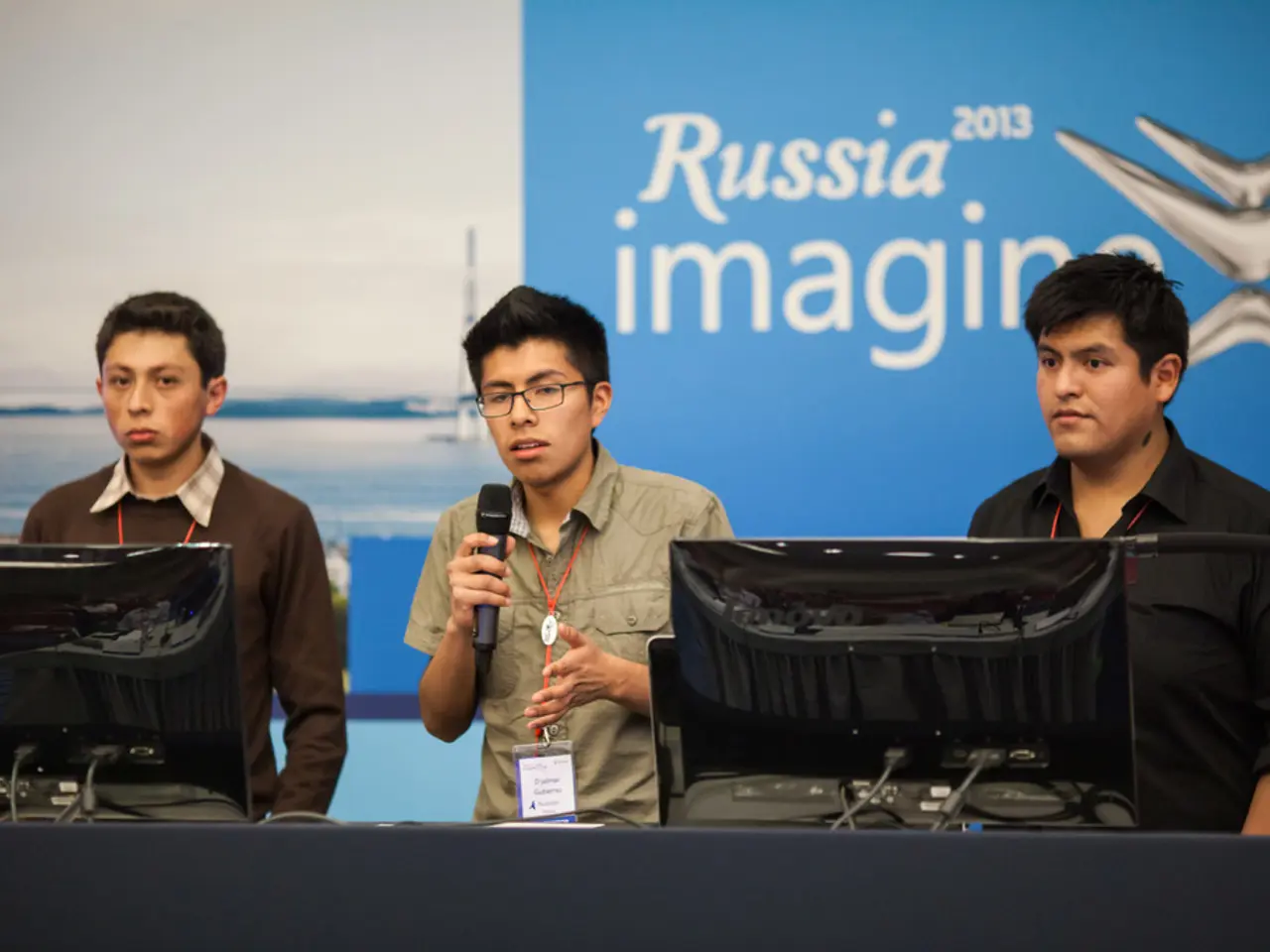Updated Information on Business Compliance with New Russia Sanctions [25.04.2022]
The ongoing conflict in Ukraine has led to a series of extensive sanctions against Russia and Belarus by major global players, particularly the European Union (EU) and aligned nations.
On April 6th, the US Office of Foreign Assets Control (OFAC) expanded President Biden's February sanctions by designating Sberbank under E.O. 14024, marking a significant move in restricting Russia's financial institutions. Simultaneously, OFAC extended its individual sanctions by adding the family members of Russian President Vladimir Putin and Foreign Minister Sergei Lavrov.
The sanctions lists include the names of individuals and entities targeted by various authorities on a national or international level. As of mid-2025, these sanctions encompass extensive trade restrictions, asset freezes, and financial prohibitions targeting key sectors including energy, defense, and finance.
One of the key sanctions is the energy sector restrictions. The EU’s 18th sanctions package, adopted on July 18, 2025, significantly tightens controls on Russian energy exports. It bans imports of refined oil products made from Russian crude through most third countries, with exceptions such as Canada, Norway, Switzerland, the UK, and the US. The price cap on Russian crude oil has been lowered from $60 to $47.60 per barrel. Imports of oil via Nord Stream 1 and 2 pipelines are totally banned, and 105 new vessels—including those from Russia's "shadow fleet"—are sanctioned, totaling 444 banned ships. Sanctions also extend to entities managing the shadow fleet, including a major Indian refinery partly owned by Russian company Rosneft.
Asset freezing and entity sanctions are another crucial component of the sanctions. The EU expanded its asset freeze list to include an additional 55 Russian and Belarusian individuals and entities, focusing on those involved in military, industrial, and financial sectors. Belarusian defense and military-industrial sector companies were also newly designated for asset freezes.
Export controls and sectoral measures have also been imposed, particularly on Belarus, requiring export authorizations for certain goods suspected of end-use in Belarusian military or industrial sectors. These controls largely mirror those imposed on Russia to prevent the supply of dual-use technologies or strategic materials that could support military operations.
Financial sanctions and payment system restrictions have affected several Russian banks, with several still banned from the SWIFT international payments system. The US applies secondary sanctions on global financial institutions that support Russia’s defense industry, potentially freezing assets or cutting access to the US financial system. Belarusian organizations and individuals, including President Lukashenko, face transaction restrictions from countries such as Japan and the US.
Global coordination has been a significant factor in the implementation of these sanctions. Besides the EU, countries in the G7 (including the UK, Canada, Japan, and the US) have implemented price caps and sanctions related to Russian oil and financial transactions. However, the extent of alignment on enforcement varies, and some countries are still determining the scope of their compliance with tightening sanctions regimes.
Businesses and customers globally face prohibitions on engaging with designated Russian and Belarusian entities and must conduct enhanced due diligence to ensure compliance, particularly in energy trading, finance, and exports of controlled goods. These measures aim to erode Russia's and Belarus’s war capabilities by cutting off revenue sources, restricting access to international finance, and denying critical military-related goods and technologies.
In addition to the EU, the US, and the UK, other countries such as Australia and Switzerland have also imposed sanctions on Russian and Belarusian entities and individuals. For instance, Australia has banned the export of certain luxury goods to Russia, including pure-bred horses, caviar, tobacco products, perfumes, leather, wine, and so on.
International sanctions are political and economic measures taken by states and organizations against other states and organizations to protect national security interests, enforce international law, defend against threats to international peace and security, combat financial crimes, prevent humanitarian crises and terrorism, and achieve diplomatic objectives.
[1] EU Council Press Release [2] Japan Ministry of Foreign Affairs [3] G7 Communiqué [4] UK Government Announcement [5] Australian Department of Foreign Affairs and Trade
- The conflict in Ukraine has led to extensive sanctions against Russia and Belarus by major global players, such as the European Union (EU) and aligned nations.
- On April 6th, the US Office of Foreign Assets Control (OFAC) expanded President Biden's February sanctions by designating Sberbank under E.O. 14024, significantly restricting Russia's financial institutions.
- Simultaneously, OFAC extended individual sanctions by adding the family members of Russian President Vladimir Putin and Foreign Minister Sergei Lavrov.
- The sanctions lists include individuals and entities targeted by various authorities on a national or international level, with these sanctions encompassing extensive trade restrictions, asset freezes, and financial prohibitions targeting key sectors like energy, defense, and finance.
- One of the key sanctions is the energy sector restrictions, which significantly tighten controls on Russian energy exports and ban imports of refined oil products made from Russian crude through most third countries.
- Asset freezing and entity sanctions are another crucial component, with the EU expanding its asset freeze list to include additional Russian and Belarusian individuals and entities, primarily in the military, industrial, and financial sectors.
- Financial sanctions and payment system restrictions have affected several Russian banks, with several still banned from the SWIFT international payments system, and the US applying secondary sanctions on global financial institutions supporting Russia’s defense industry.
- Belarusian organizations and individuals, including President Lukashenko, face transaction restrictions from countries such as Japan and the US.
- Global coordination has been key in the implementation of these sanctions, with countries in the G7 (including the UK, Canada, Japan, and the US) implementing price caps and sanctions related to Russian oil and financial transactions.
- Businesses and customers globally face prohibitions on engaging with designated Russian and Belarusian entities and must conduct enhanced due diligence to ensure compliance, particularly in energy trading, finance, and exports of controlled goods.
- International sanctions are political and economic measures taken by states and organizations against other states and organizations to protect national security interests, enforce international law, defend against threats to international peace and security, combat financial crimes, prevent humanitarian crises and terrorism, and achieve diplomatic objectives.





